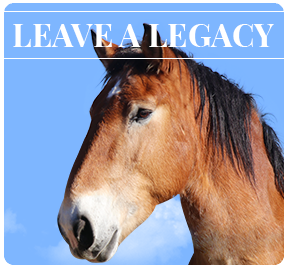Meeting Your Horse’s Physical And Emotional Needs For Variety
by Barbara Manfrediz
If we did not confine our horses to paddocks and fields, they would walk about for miles each day continually grazing on an incredible variety of dry and newly sprouted grasses, weeds, seeds, a few fruits, and flowers. These are the nutritional mainstays of our horse’s natural diet. The free-roaming horse will also chew on an occasional bush or tree, nibbling at branches and bark and he will also search out the perfect buried or half-buried rock to lick in order to satisfy his craving for various minerals and salt. It is in this manner that the free-roaming horse meets his nutritional needs, dental needs, and self-medicates.
When we confine our horses we severely limit their access to the variety they need and crave. We not only limit the variety but we also limit their ability to make choices and self-help themselves.
We need variety and fresh foods and wouldn’t think of existing solely on a diet of “Total” cereal even though it says right on the box that it meets 100% of our daily requirement of vitamins and minerals! Our animals, including horses also need fresh, whole and raw foods!
Fresh and dried herbs (weeds, roots and flowers) and other natural elements (branches, rocks, and bark) from nearby wooded or field areas are an excellent way to add variety, nutrition and chewing pleasure to your horse’s diet! They are your horse’s natural choice!
Vegetables and fruit are not only a tasty treat for horses but are also a source of natural vitamins and minerals. Additionally, fresh raw foods contain enzymes that feed the healthy bacteria in our horse’s digestive system. A healthy bacterial flora is essential to your horse’s digestion.
As the caregiver companion and partner to your horse, you can help meet some of his emotional and physical needs for variety and free choice while he is confined. You can do this by providing him access to fresh and dried herbs, fresh fruits, vegetables, roots, branches and tree bark (for instance, provide him with some pine logs and fresh pine branches if he does not have access to pine trees in his confined area). Once you start thinking along these lines, you will begin to think of countless natural, healthy elements and foods you can provide to your horse and add to your horse’s food bin and enhance their overall environment in a way that will give him pleasure, will allow him to make choices, and that will benefit him nutritionally.
If your horse is not accustomed to variety, his first reaction may appear to be “eeeks, my person is trying to poison me”…don’t despair, he is a product of his limited domestic environment. The key is to be big on variety and small on portion and don’t be discouraged at first when your horse turns his nose up at most of what you offer him. Keep at it and watch your horse bloom!
Some food items you may not have thought of that many horses enjoy and benefit from: numerous wild flowers, rose petals and hips from your rose garden, dandelion and other weeds from your yard (unless you use toxic chemicals on your flowers and lawn), weeds and grasses from along our road sides, culinary herbs from your garden (or your neighbors J) such as thyme and rosemary, garlic and ginger (although not at first, our horses now love to eat whole cloves of garlic and pieces of fresh ginger root). Raw seeds such as sunflower and those you would normally throw away from melons and squash. Various varieties of squash, yams, jicama, oranges, grapefruit, banana, strawberries and grapes are also favorites.
Additionally, in an effort to provide variety to our own horses, we regularly allow our horses “grazing time” after a trail ride and will take them out many evenings to graze “a la carte” along our roadside.
Good luck and enjoy watching the change in your horse!






